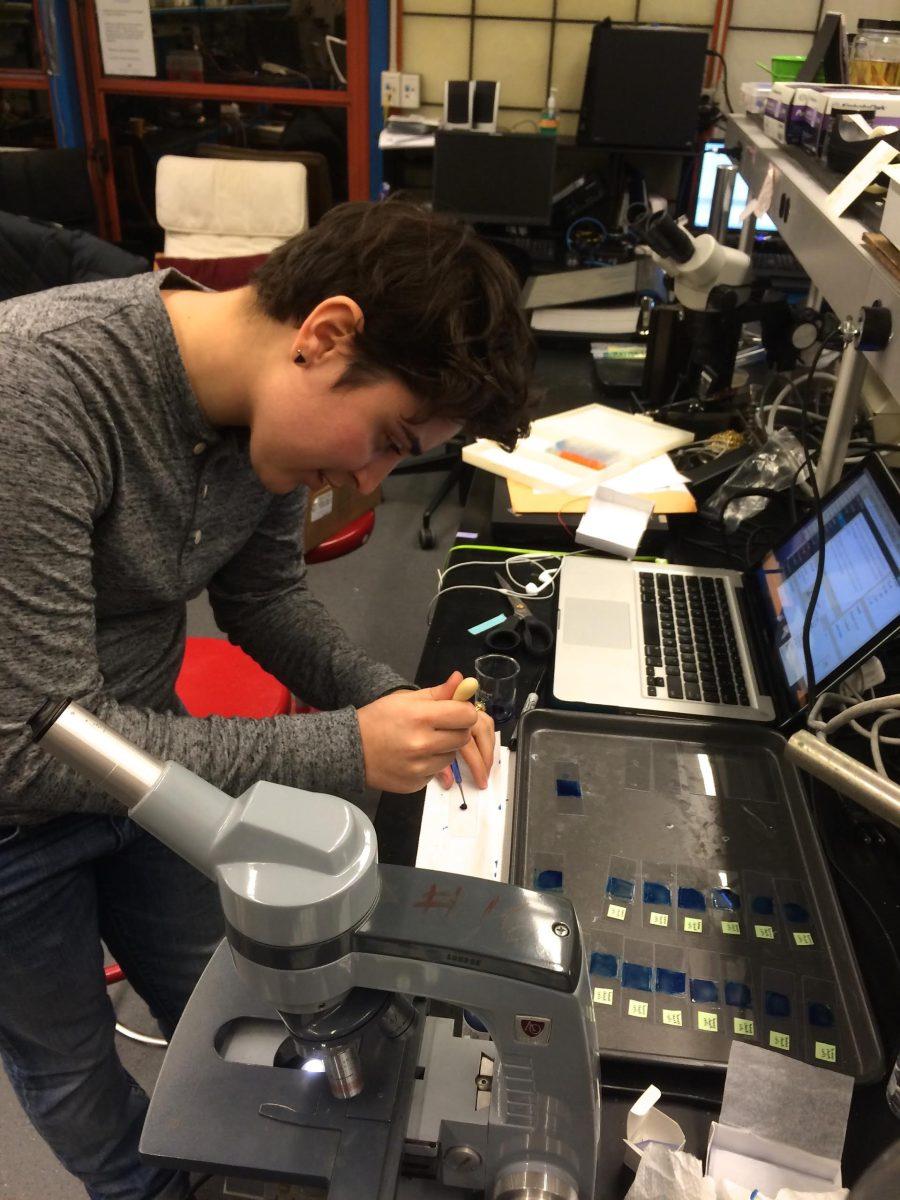It all started with a trip to Morogoro, Tanzania, Women’s and Gender Studies major Kayla Bercu ’16 said as they described how a high school trip to East Africa left them inspired to help young girls become more involved in science.
“When I was 17, I visited Tanzania for the first time because my housemaster at boarding school’s friend had just opened a school for maltreated girls, and so we started fundraising to send a girl to school,” Bercu said.
They learned that many girls in Tanzania were unable to continue in school because the girls had gotten pregnant or had been sold to other people in the village as slaves, and they were confronted with such stories of “unbelievable horrors” during their month long visit.
But during that time, they also had the opportunity to interact with girls their own age. They not only had the opportunity to help read over the girls’ English papers, but they also learned about the beauty of Tanzanian culture and hardships of the girls’ life experiences. In fact, one such friendship with a young girl named Neema made a lasting impression on Bercu, even long after they parted ways. Since then, Bercu was left thinking about how to extend the impact of that one visit.
“I’d go to bed thinking, ‘Great, we sent one girl to school — but this isn’t sustainable,’” Bercu said, addressing the difficulty of creating long-term impactful intervention.
After attending Wellesley College for two years, Bercu was struck by the disparity between their education and the limited resources of the girls in Tanzania.
As a result, they hoped to find a way to use their skills and knowledge to find a way to give back and help these girls develop a passion for science. That was when they came up with the idea of a “lab in a box” design. While the project began with a lot of research, the findings proved fruitful. After discovering and compiling data that proved a need for this type of intervention to help young girls in Kenya, they moved on to differentiate their project from other existing works.
Hoping to place the focus of Science Education Equity Development Kit (SEED) Kit on its ability to provide a sustainable, low cost and self-contained resource that children would be able to use in classrooms where there might be no electricity or running water, Bercu then pitched the idea to biological sciences professor David Ellerby as an independent research project. As for the response they received, their description of his answer was nothing but supportive: “Absolutely, go for it.”
Bercu hopes to have a prototype designed and tested by the end of the summer that can then be tested in local schools by next fall. In order to assist with their project, Bercu received Foldscopes, paper microsopes, from the Prakash Lab at Stanford University and hopes to complete more grant writing, research and brainstorming before seeing how far the project will go.
Mehak Sarang ’18, who will serve as a research assistant for the project, was initially a member of Wellesley’s Science Club for Girls and has always been interested in sharing their love for science with young girls.
“I am excited to have an opportunity to do the same thing on a larger scale,” Sarang said of this opportunity to contribute to the SEED kit project. She looks forward to designing sustainable laboratory kits that can be used in all types of classrooms and hopes that they will help inspire girls to be more curious about the world around them.
In fact, the type of enthusiasm that this project brings seems to be contagious. As Bercu described how one of the kits would involve fold-scopes, which are “paper microscopes” that consist of a laser cut paper and a spherical lens that have a price tag of 50 cents to a dollar, it was difficult to not become a part of their vision. It was amazing to see how such small and cheap instruments could really make a difference in young girls’ education. This is exactly the type of work that Bercu hopes to accomplish.
Ellerby was taken by Bercu’s commitment of time and energy to the project since beginning the project in the fall of 2014. He believes that it is the students’ interdisciplinary approach to this endeavor that will make the difference.
Furthermore, it seems that the approach to the SEED kit project is demonstrative of the pedagogy that Wellesley College hopes to instill in its own science students. “Creativity and lateral thinking are vital to the sciences. One of the best ways to develop these skills is through hands-on experience in designing and performing your own experiments,” Ellerby said.
The article previously mentioned that Bercu received funding from a lab at Stanford University, when in actuality, they received a donation of Foldscope from the Prakash Lab. Furthermore, the article also stated that David Ellerby is a researcher in the chemistry department; David Ellerby is an assistant professor of Biological Sciences. Previously, the article also called Neema by Nemu. The article has been updated to reflect these errors.
Photo courtesy of Kayla Bercu ’16
Kily Wong ’16 is a Features Editor who is majoring in Psychology and English. In her spare time, she enjoys exploring cafes in Boston and loves pointing out the many ways that pets take after their owners. She can be reached at [email protected].






